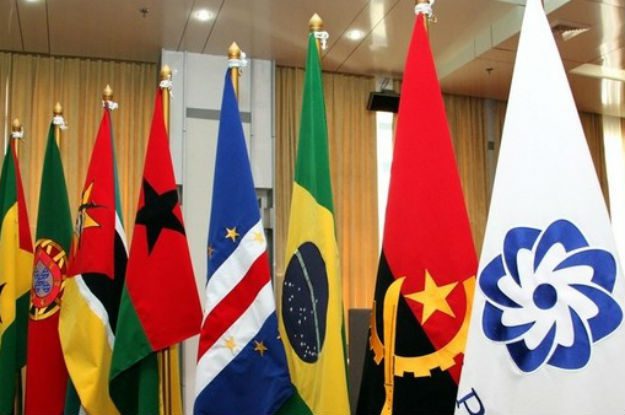Global Issues
How the Portuguese Language Countries Are Facing Challenges -By Kester Kenn Klomegah
His interpretation is that some people, mostly in Portugal and Brazil refer to the CPLP as a “Lusophone Community” while others look at it from different perspectives. This is far from realty. The diversity of languages inside the other CPLP countries, the Portuguese functions as an official language that helps to create a sense of national unity and regional differentiation, but it does not substitute for the realty of diverse cultural settings among and within the countries.

After two and half decades of its existence as a popular multilateral forum for Portuguese-speaking countries, the Confederação Empresarial da CPLP has been looking at multifaceted and diverse opportunities to strengthen the organization and ultimately to improve mutual cooperation among the member-governments which are geographically located in separate continents.
The Confederação Empresarial da CPLP (translated as the Community of Portuguese Language Countries) was established in 1996 on the basis of Portuguese language and culture, and it unites all the Portuguese-speaking African countries with Portugal in the European Union.
The official documents list Angola, Brazil, Cabo Verde, Guinea-Bissau, Equatorial Guinea, Mozambique, Portugal, Sao Tome and Principe and East Timor as the nine member states of the CPLP, and has 32 countries and organizations as associated observers. Last year, it celebrated its 25th anniversary of it establishment, outlined new tasks for its future development.
Despite the widespread of Covid-19 pandemic that shattered the global economy, the CPLP has been engaging in various activities directed at realizing collective goals and tasks that were fixed during the silver jubilee anniversary.
Last December for instance, the CPLP and the G7+, a group of fragile states, came together to strengthen cooperation in the field of public health to accelerate vaccination against Covid-19 in their member states. At the headquarters of the Lusophone organization in Lisbon, the Executive Secretary of the CPLP, Zacarias da Costa, said that several proposals for cooperation “in the south-south format” had been presented, namely “combating the enormous inequalities that exist with regard to the vaccination process” against Covid-19.
It became necessary due to the fact the group was experiencing what was described as a “delicate situation” in the field of public health, noting that there has been “an approach to various pharmaceutical associations and companies to speed up the vaccination process” in its member countries, particularly in the most fragile, where the vaccination rate is very low.
According to Zacarias da Costa, there were other forms of cooperation implemented such as the promotion and dissemination of the Portuguese language, political and diplomatic cooperation with organizations such as the African Union and the United Nations. “There are several ways of implementing this CPLP – G7+ partnership, the implementation of initiatives of interest, with funding and co-financing, through the CPLP’s Special Fund”, Zacarias da Costa stressed.
Zacarias da Costa noted that the two organizations have three member states in common: Guinea Bissau, Sao Tome and Principe and East Timor and that several of the G7+ countries have Portuguese-speaking diasporas. They have historical, cultural and economic ties with the countries of the CPLP, which is an organization that promotes peace and solidarity between nations.
“Obviously, all these aspects pave the way for an enormous capital of empathy and friendship between our countries that serve as the basis for a vibrant and dynamic relationship of cooperation,” Zacarias da Costa added. He highlighted a number of plans in the social area of promoting Portuguese as “a language for the dissemination of peace” and future partnerships in the field of economic development. The G7+ is an international organization with seven countries that have experienced or are experiencing conflicts or particular political fragility.
Equatorial Guinea hosted CPLP business summit in May 2021. During the summit, attended by more than 250 corporate business leaders and several company representatives, the Head of State of Cabo Verde and Acting President of the CPLP, Jorge Carlos Fonseca, emphasized, during online meeting, the importance for consolidating integration, demonstrate using resources and opportunities toward improving the economies of members of the group. He further pointed out the ratification of the protocols on mobility.
The agreement has indeed seen noticeable progress. Mozambique is the fifth of the nine CPLP member states to deliver the instrument of ratification of the Mobility Agreement, after Cabo Verde, Sao Tome and Principe, Portugal and Guinea-Bissau, which did so by the end of December 2021. According to the agreement, the visa waiver applies “only to holders of diplomatic, official, special and service passports” to and from member countries of CPLP, as published in the Official Gazette.
The agreement was submitted for registration with the United Nations Secretariat, and it will subsequently be up to each country to legislate specifically on how it will facilitate the movement of people between the signatory countries. It establishes a “framework for cooperation” between all member states in a “flexible and variable” manner and, in practice, covers any citizen.
States are provided with a range of solutions that allow them to assume “commitments arising from mobility in a progressive manner and with differentiated levels of integration”, taking into account their own internal political, social and administrative specifics. In this context, they are “free to choose the mobility arrangements, the categories of persons concerned” as well as the countries with which they wish to establish partnerships.
In February this year, Brazil’s Senate approved the mobility agreement and ready for final ratification with the group. Brazil combines geopolitical interests with centuries-old cultural ties. The text approved in Brazil lists four situations related to the ease of mobility between the signatory countries: short-term stay, temporary stay, residence visa and residence permit.
Equatorial Guinea yet to provide information. Equatorial Guinea is the third largest oil producing country in sub-Saharan Africa, after Nigeria and Angola, and has significant natural gas reserves, in an economy heavily dependent on the hydrocarbons sector, which in 2016 represented about 60% of the Gross Domestic Product. Its economy has been in negative territory for several years, and should, according to estimates by Equatorial Guinea’s National Institute of Statistics, resumed growth of 2.8% in 2021.
Diário Econômico, local Portuguese media, reported that oil and gas exploration, tourism, agriculture, fishing, banking, training are some of the sectors of Portuguese companies are searching for possible investment. The CPLP members are ready for cooperation between members who gathered for the most recent business summit March 17 to 19, in São Tomé and Príncipe.
Entrepreneurs from Angola, Cape Verde, Equatorial Guinea, Mozambique, São Tomé and Príncipe and Portugal thoroughly discussed business opportunities and put forward the possibility to increase levels of exports within the market. The participants were eager to establish partnerships and find markets for a variety of products, as part of the second summit of the Business Confederation of the Community of Portuguese-Speaking Countries (CE-CPLP), which started March 17 until March 19, in São Tomé and Príncipe.
For most of the participants, the summit demonstrates the enormous potential, business opportunities, resources and funding that are available agriculture and food processing, and innovative instruments to promote private investments and public-private partnerships, energy and infrastructure, the internationalization of companies and many other closely-related questions.
For the second time this year, a CPLP delegation from the Executive Secretariat went to Malabo, Equatorial Guinea. Its key tasks outlined in the document and seen by IDN, among others, is to deal with issues relating to civil society and human rights, and to support aspects of integration processes for Equatorial Guinea. The document says the delegation, between April 4 to 8, has to implement two axes of the “Programme of Support for the Integration of Equatorial Guinea – PAIGE (2021-2022), namely, Civil Society and Human Rights” in Malabo.
The delegation made up of representatives from the Platform of non-governmental organizations (NGOs) of Cabo Verde (PLATONG), the League of NGOs of Mozambique (JOINT), the Human Rights Commission of Portugal, the United Nations Office on Drugs and Crime (UNODC), the Attorney General’s Office of Cabo Verde, the immigration and borders service of Portugal and the Centre for Human Rights Ius Gentium Conimbrgae (IGC), and the University of Coimbra.
“In coordination with the authorities of Equatorial Guinea, the executive-secretariat of the CPLP has already been developing on the ground the activities of four axes of the PAIGE, namely, ‘Promotion of the Portuguese Language’, ‘Acquis’, ‘Cultural Heritage’ and ‘Social Communication’, between March 7 and 11, 2022,” according to the document.
The delegation made up of representatives from the Platform of non-governmental organizations (NGOs) of Cabo Verde (PLATONG), the League of NGOs of Mozambique (JOINT), the Human Rights Commission of Portugal, the United Nations Office on Drugs and Crime (UNODC), the Attorney General’s Office of Cabo Verde, the immigration and borders service of Portugal and the Centre for Human Rights Ius Gentium Conimbrgae (IGC), and the University of Coimbra.
Recalling further that the XXIV CPLP Cabinet of Ministers, meeting in the city of Mindelo in July 2019, mandated the Executive-Secretary to “promote, in coordination with the authorities of Equatorial Guinea, the elaboration of the PAIGE with initiatives that include the five axes of the Accession Programme, plus two additional axes proposed by Equatorial Guinea, namely Human Rights and Economic Development.”
On March 7 a CPLP delegation visited the country which aimed to accelerate the country’s integration as a member state of the organization and discuss “commitments” taken by the country, such as the abolition of the death penalty, as acknowledged by the Executive Secretary Zacarias da Costa. The promise was that the country will soon ratify the CPLP Mobility Agreement, signed by all member states in July 2021 at the summit of heads of state and government.
The former Minister of Foreign Affairs of Timor-Leste recalled that “there have been more and more member states publicly declaring their expectations, somewhat frustrated, regarding the stagnation” in fulfilling the commitments made by Equatorial Guinea when it joined the Lusophone bloc in 2014. Namely, with regard to the abolition of the death penalty in the Criminal Code, but “also, obviously another important issue, which is the implementation of the Portuguese language” in this country, the only Spanish-speaking country in the organization, he said.
At the 2014 summit in Dili, where the country’s membership of the organization was approved, in a speech in Portuguese before the Lusophone leaders, the President of Equatorial Guinea, Teodoro Obiang, made a commitment. The commitment is to “defend the statutes” of the CPLP and “act according to its principles and objectives” and announced that the Spanish speaking nation would have, the following year, a Portuguese-speaking multidisciplinary study center dedicated to the community.
After that visit to the country, which lasted until 11 March, the community’s Executive Secretary said that the revision of the penal code to abolish the death penalty in the country had reached the parliament, precisely on the last day of his visit to Equatorial Guinea. Zacarias da Costa said the document would soon be sent for promulgation by President Teodoro Obiang in Malabo, capital of Equatorial Guinea.
Social and cultural issues are prominent on the current agenda. The Community of Portuguese Language Countries (CPLP) from the headquarters in Lisbon are cooperating with United Nations Educational, Scientific and Cultural Organization (UNESCO). The key priority here is to forge partnership in various aspects in the development of education.
“We intend to bring the CPLP’s participation and contribution of UNESCO. We all know the value that UNESCO has, as well as other United Nations bodies,” said Luísa Maria Alves Grilo at a press conference during the Second Special Meeting of Education Ministers of the CPLP, held in person at the organization’s headquarters in Lisbon, and by videoconference.
Documents made available to IDN this month show that the CPLP and its Deputy Director-General for Education, Stefania Giannini, are currently working on a number of educational programmes. It shows further the need to work together and multilateral cooperation in the field of education, especially focusing on curriculum and organization for student mobility and the training of teachers.
“By joining synergies, we are proposing a commitment to our member states for the implementation of these actions, which always involve specialized human resources, but also important financial resources,” argues Luisa Grilo, Angolan Education Minister who took part in the negotiation with UNESCO. She added that the fact that UNESCO is willing to work and seek partners and to make specialists available to participate in the area of curricula is already a significant financial contribution.
In addition, she underlined “the will that exists, both from the point of view of the political authorities and the ministers of education” to make the community visible, not only in the “nine countries but also at an international level. “Exactly why we want the CPLP to become an important element in the United Nations, particularly in UNESCO. What we are trying to propose here is a contingency plan within the community for education in emergency contexts, so that we can prepare for future situations,” concluded Luisa Grilo.
Fernando Jorge Cardoso, Researcher at the Centre for International Studies at Lisbon’s ISCTE University Institute, argues in IDN interview that most members of the CPLP are young countries with lots of problems including an innocuous accomplishment of democracy and human rights. While there are confrontation of diverse scenarios, it is important to understand each country has its own reality and governments follow diverse strategies.
His interpretation is that some people, mostly in Portugal and Brazil refer to the CPLP as a “Lusophone Community” while others look at it from different perspectives. This is far from realty. The diversity of languages inside the other CPLP countries, the Portuguese functions as an official language that helps to create a sense of national unity and regional differentiation, but it does not substitute for the realty of diverse cultural settings among and within the countries.
The CPLP Conference of Heads of State and Government is the community’s highest organ. It meets every two years and is responsible for defining and guiding its general policies and strategies. The CPLP continues looking for diverse ways of international integration and collaboration in Europe, South America, Asia, Africa and Oceania. With 32 countries and organizations as associated observers, there are Angola, Brazil, Cabo Verde, Guinea-Bissau, Equatorial Guinea, Mozambique, Portugal, Sao Tome and Principe and Timor Leste as members of the Confederação Empresarial da CPLP. *This article was first and originally published by IDN-InDepthNews.



















